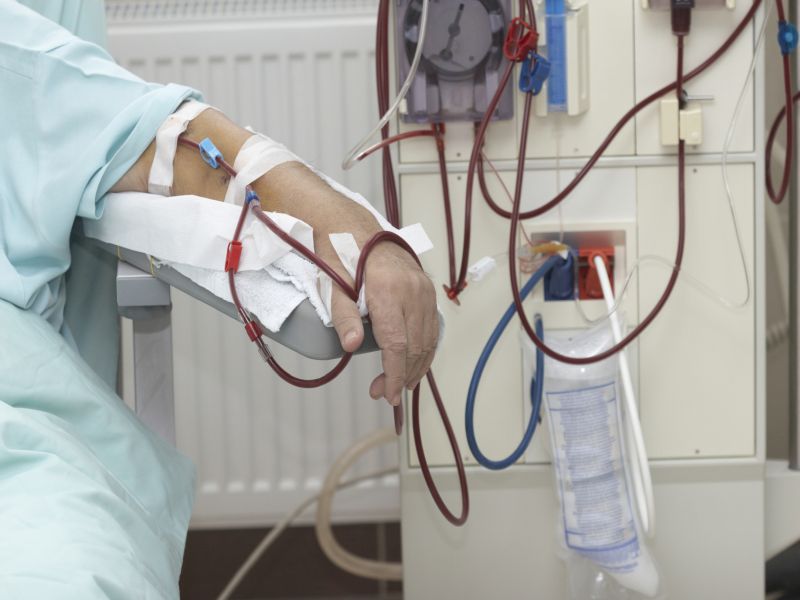Prescription Opioids Linked to Poor Outcomes in Kidney Patients

THURSDAY, Oct. 3, 2019 (HealthDay News) -- If you have chronic kidney disease, taking opioids for pain may increase your odds of hospitalization or early death, a new study suggests.
The risks were particularly elevated at the highest opioid doses, the researchers said.
"We found that receipt of prescription opioids was associated with a higher risk of death and hospitalization compared with other pain medications, particularly with higher doses," said Dr. Tessa Novick, co-leader of the study.
"The risk of death was highest among people with lower kidney function," added Novick, of Johns Hopkins University, in Baltimore.
For the study, the investigators looked at deaths and hospitalizations of patients receiving opioids like OxyContin (oxycodone), and those taking NSAIDs (nonsteroidal anti-inflammatory drugs) such as ibuprofen (Advil) and aspirin.
The report was published online Oct. 3 in the Clinical Journal of the American Society of Nephrology.
Of the more than 46,000 study patients, nearly 2,500 died and more than 9,000 were hospitalized, according to the report.
The researchers found that among patients with normal kidney function, those given high doses of opioids were more than twice as likely to die during the study period, compared with those taking NSAIDs.
In addition, those with moderate-to-severe kidney disease taking high doses of opioids had a nearly four times higher risk of dying during the study period. However, the study only showed an association, not cause and effect.
The findings also showed a 68% increased risk of hospitalization in patients with normal kidney function who were given high doses of opioids versus NSAIDs. The risk of hospitalization in those using opioids remained the same regardless of kidney function, Novick and her colleagues noted in a journal news release.
More information
The U.S. National Institute of Diabetes and Digestive and Kidney Diseases has more on kidney disease.

The news stories provided in Health News and our Health-E News Newsletter are a service of the nationally syndicated HealthDay® news and information company. Stories refer to national trends and breaking health news, and are not necessarily indicative of or always supported by our facility and providers. This information is provided for informational and educational purposes only, and is not intended to be a substitute for medical advice, diagnosis, or treatment.

